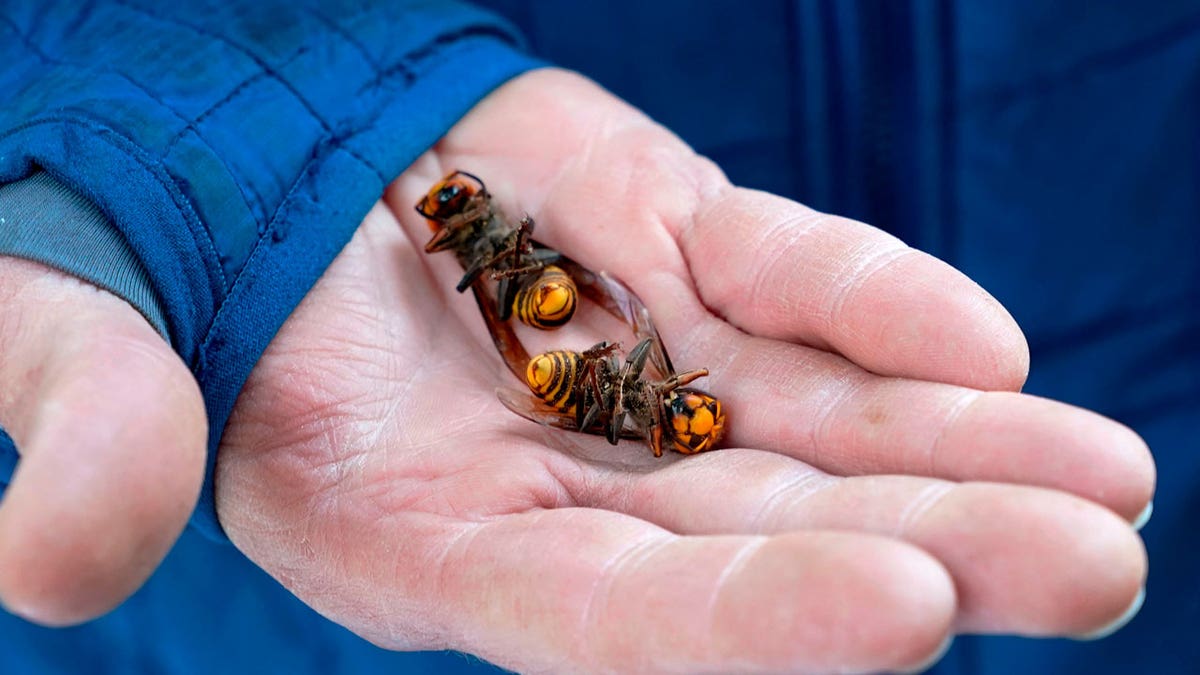Fox News Flash top headlines for December 7
Fox News Flash top headlines are here. Check out what's clicking on Foxnews.com.
Citizen trapping of northern giant hornets in northwest Washington ended Nov. 30 without any confirmed sightings of the hornets this year, state officials said Tuesday.
The Washington State Department of Agriculture also said that no confirmed sightings of the hornets were reported nearby in British Columbia, Canada. The northern giant hornet is native to Asia and has been the target of eradication efforts after hornets were discovered in both locations in 2019.
More than 1,000 northern giant hornet traps were set over the summer by Washington state residents and entomologists. Hornets caught in traps help scientists find the location of nests.
Officials said while there have been no confirmed sightings, it's still important to be on the lookout for the hornets and report any, dead or alive, to the state Agriculture Department’s website.
WASHINGTON WILDLIFE OFFICIALS KILL BLACK BEAR THAT ATTACKED WOMAN WALKING DOG
According to state entomologists, the northern giant hornets season typically runs from July through November. The hornets will not be considered eradicated until Washington has gone three years with no detections. Confirmed sightings of the pest were last recorded in 2021.
The insects are the world’s largest hornets, with queens reaching up to 2 inches long. They are considered invasive in North America for their ability to kill other bee and hornet species, which is how they got their nickname "murder hornets."

A Washington State Department of Agriculture workers holds two of the dozens of Asian giant hornets vacuumed from a tree on Oct. 24, 2020, in Blaine, Washington. (Elaine Thompson/Pool/AFP via Getty Images)
The hornets can also deliver a painful sting, which can be deadly if a person is stung repeatedly. They rarely attack people.
The Entomological Society of America this summer established northern giant hornet as the official name for the insect.
CLICK HERE TO GET THE FOX NEWS APP
Scientists have said they believe the hornets in the U.S. are confined in Whatcom County, which is located on the Canadian border north of Seattle. Washington state entomologists have eradicated a total of four northern giant hornet nests in that area.
It's not known how the pest was introduced into the region.


